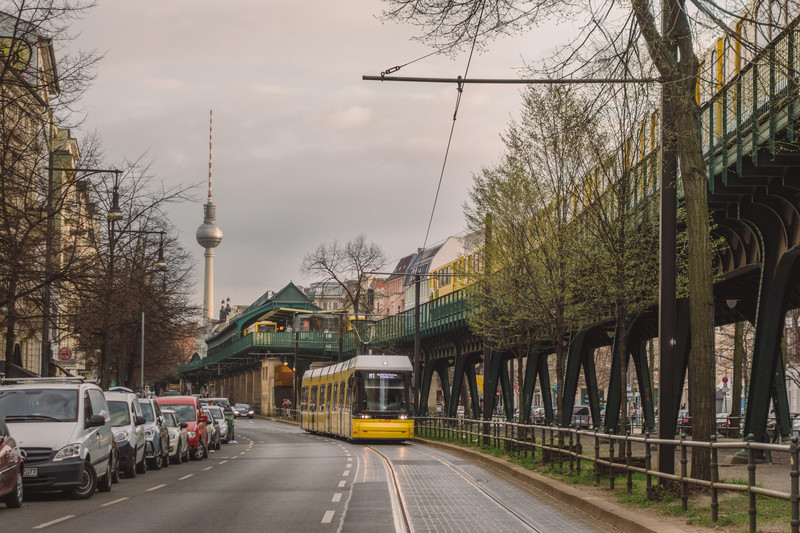EU & the World
Greenpeace: Most EU Public Transport Is Too Expensive

Greenpeace’s new analysis of the affordability of public transportation in 30 European countries concluded that prices are high in most places.
According to data published on Thursday (4th May), only Austria, Germany, and Hungary offer relatively affordable tickets for nationwide travel, costing less that EUR3 per day.
Read and decide
Join EUobserver Today
Expertise yourself on Europe
Instant access to all articles and archives dating back 20 years. 14-day free trial.
Choose your plan
Subscribe as a group or…
The worst performers in the ranking were Bulgaria, Croatia and Greece. Dublin, London, Paris, and Amsterdam, with tickets priced above EUR2.25 a day, ranked last in the list. Amsterdam, for instance, charges EUR1,001 for a yearly pass.
Around two-thirds (or 63%) of the countries studied do not offer any countrywide long-term travel pass. The report also targets taxes on public transportation, which average 11 percent VAT and are “higher than most basic services.”
Six EU countries, including Romania Bulgaria, Estonia, Slovakia Croatia and Hungary, tax public transport at a high rate, with Hungary leading at 27 percent.
“Affordable transport is a necessity but many governments treat this like a luxury,” said Greenpeace EU Transport Campaigner Lorelei Limousin.
She points out the fact that kerosene and cross-border airline tickets do not have to pay VAT. The report concludes that removing VAT from bus and train tickets will encourage people to drive less. However, Limousin says more needs to be accomplished.
The analysis comes just days after the new low-cost national travel cards for Germany and Hungary came into force on 1 May. The “Deutschlandticket” offers a monthly EUR49 ticket to use local and regional public transportation. According to the German Transit Authority, one billion trips are made per month under the scheme. One in five buyers of the scheme is a first-time traveller who does not normally use public transportation.
Market research shows that about half of the population used the cheaper tickets.
Last month, German Transport Minister Volker Wissing expressed support for an affordable pan-European ticket. Greenpeace also supports this proposal and has asked the European Commission to help facilitate the introduction of such a ticket in the near future.
Limousin said that governments should introduce ‘climate tickets,’ simple and affordable, for public transport to reduce people’s bills while reducing the oil consumption that is driving our planet into climate disaster. These services could be paid for by taxing polluting travel methods and ending tax exemptions for international flight and aviation fuel.
EU & the World
Joe Biden’s Health: Does the Former President Have Cancer?
Joe Biden has revealed he’s battling an aggressive form of prostate cancer that has spread to his bones. Find out more about his condition and treatment plan here.
EU & the World
Who Is Eugene in ‘The Last of Us’? Everything to Know About the Character
Find out more about the character who didn’t appear in the video game but plays a pivotal role in Season 2 of the HBO series.
EU & the World
What Time Does ‘The Last of Us’ Air? When to Watch Season 2 Episodes
Find out what time ‘The Last of Us’ airs and how to watch every episode of Season 2 as it drops.
-
EU & the World4 days ago
Who Is Valeria Marquez? About the Influencer Who Was Shot During Livestream
-
EU & the World5 days ago
Cardi B & Offset’s Relationship Timeline: From Marriage To Cheating Drama & Split
-
EU & the World2 days ago
Chris Brown Tour 2025: Updates on Concert Dates, Cities, Ticket Prices & More
-
Politics6 days ago
EU Assesses Support for Ukrainian Refugees: Challenges and Flexibility in Humanitarian Response
-
EU & the World3 days ago
Who Is Ben Cohen? About the Ben & Jerry’s Co-Founder Who Was Arrested During Senate Hearing
-
Sports6 days ago
Matteo Berrettini forced to retire amid tears at Internazionali d'Italia
-
Travel5 days ago
Crete earthquake: Is it safe to travel to the Greek island following tsunami warning?
-
EU & the World6 days ago
Tory Lanez’s Net Worth: How Much Money He Makes Amid Jail Time